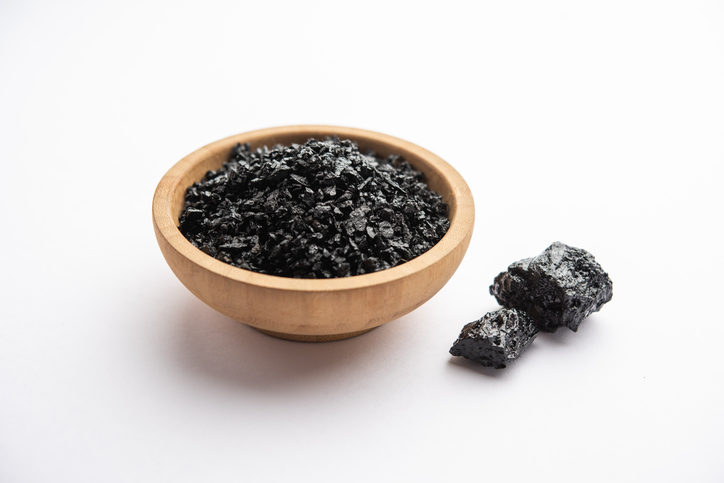A dark sticky resin that comes from rock layers found in mostly mountain areas around the world, shilajit is a “herbomineral.” It is formed over centuries due to the slow cycle of decomposition of plants, with microorganisms helping to complete the process. It is common to find shilajit in the very high elevations of the Himalayas, up to 17,000 feet above sea level.
History has shown us that shilajit was used as a medicine by Yogis in India, as well as many other Asian locations. Today, shilajit is consumed by many people from Nepal and India, and children commonly have it in milk at breakfast. The sherpas, a Tibetan ethnic group native to Nepal, use shilajit as a part of their regular diet and are known to be a strong people with great longevity.
Due to its effects at restoring balance and energy, shilajit is now being celebrated as a super nutrient. The antioxidant fulvic acid is the primary component of shilajit. It is being studied for its positive effects on cognitive decline, primarily by helping to prevent the build-up of Tau protein. Just as having normal, manageable levels of inflammation in the body is ideal, Tau protein has an important role in our nervous systems, but a buildup of it can trigger damage to brain cells. Of course, more studies are necessary on fulvic acid’s benefits for both high levels of inflammation and Tau protein.
There are many other areas where shilajit has shown promise while providing noticeable health benefits. It is commonly used for general fatigue, exhaustion, and stress reduction, as well as in the area of active aging. There is resounding feedback in the area of low testosterone in men, primarily with sex drive, energy, and muscle mass. There is also research being done on anemia and heart health.
Researchers report: “Shilajit is a potent and very safe dietary supplement, potentially able to prevent several diseases, but its main medical application now appears to come from its actions in the benefits of cognition, and potentially as a dietary supplement to prevent Alzheimer’s disease. In essence, this is a nutraceutical product.”
Shilajit is available in liquid resin form, capsules, and powdered formulas, and it is becoming more popular in blended combinations. Research has shown that shilajit is safe for long-term use, but it should not be used by those who are breastfeeding or pregnant without a medical practitioners’ approval. It may possibly increase iron levels, so those who are subject to hemochromatosis should not use it, and as always one should consult a personal healthcare provider.










